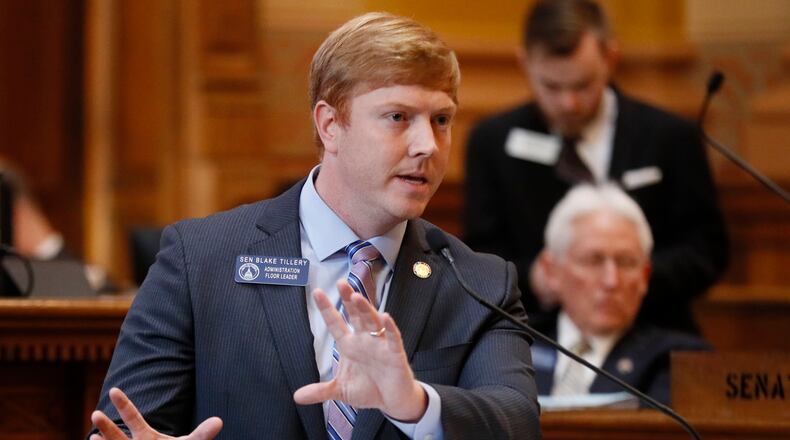The Legislature may not be back in session until June, but for the second time in less than a year, state agencies will work quickly to come up with budget-cutting plans -- this time because of the economic impact of the coronavirus pandemic.
New Senate Appropriations Chairman Blake Tillery, R-Vidalia, said this week that he is having budget subcommittee chairmen ask agencies questions about how they will deal with the situation.
Tillery recently replaced Jack Hill, the longtime Senate budget chairman who died earlier this month.
If lawmakers return in June, they have to work fast to pass a budget for fiscal 2021, which begins July 1.
Tillery said he wants to get a start on the process and find out how agencies prioritize their programs. He hopes to have some answers from agencies by the end of next week.
“We want to get ahead of this,” Tillery said.
House Speaker David Ralston, R-Blue Ridge, said the House budget subcommittees will likely start holding in-person hearings at the Capitol in a few weeks.
A report out earlier this week suggested the state could face at least a $4 billion revenue shortfall over the next 15 months because of the disruption to the economy brought on by the coronavirus.
The General Assembly suspended its session in March due to the pandemic without passing a 2021 budget. Even if it had, lawmakers probably would have to rewrite it now.
Gov. Brian Kemp ordered state agencies in August to come up with plans to cut their budgets by 4% this year and 6% in fiscal 2021. He gave them about a month to come up with those proposals.
This time it’ll be more guesswork for agencies. They don’t know how much they’ll have to cut because tax collection data for the business shutdown is nowhere near complete, making the governor’s job of estimating how much money the state will have to spend in the upcoming year difficult.
It’s also unclear how bad the recession will be once businesses open back up and more Georgians return to work.
Ralston said he wanted to wait until June 11 to go back into session to let officials get a better picture of the financial outlook.
“We know it’s going to be bad,” he said. “We just don’t know how deep it will go.”
About the Author
Keep Reading
The Latest
Featured



